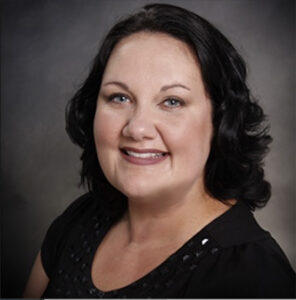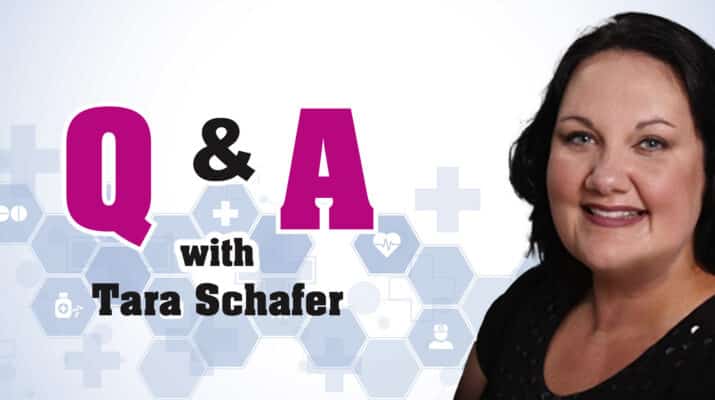Executive director of Literacy Buffalo Niagara explains how agency helps improve literacy and quality of life in WNY
By Brenda Alesii
 “Change starts with a word.”
“Change starts with a word.”
That’s the philosophy espoused by Literacy Buffalo Niagara, an organization that provides free one-on-one tutoring and small group instruction.
The basic literacy and English language learning programs are for adults seeking to improve their reading skills and who are new to speaking English. Typically, students receive a customized learning plan to work toward their reading goals and meet with a volunteer tutor in a public setting for two hours per week.
In the combined population of Erie and Niagara counties, 17.5% of adults struggle due to lack of functional literacy, reading at or below level 1.
In Good Health recently spoke with Tara Schafer, executive director of Literacy Buffalo Niagara — the sole provider of free, individual literacy services — about the objectives of her organization and a major health literacy grant the nonprofit received from the Highmark Blue Cross Blue Shield’s Blue Fund.
An Alden resident, Schafer earned a bachelor’s degree from SUNY Brockport and master’s in executive leadership and change from Daemen University.
Q: You’ve been in your position for nearly a decade. How long has the agency been in service and where are you headquartered?
A: We’ve been in business for 58 years. Our original name was Literacy Volunteers, which was changed 10 years ago to Literacy Buffalo Niagara. Our offices are located inside the Central Library, 1 Lafayette Square in Buffalo. In Niagara County, we have a mobile office.
Q: What type of grant was your organization awarded by Highmark Blue Cross Blue Shield’s Blue Fund?
A: We are deeply grateful to Highmark Blue Cross Blue Shield for their generous $100,000 grant. It will be instrumental in launching our health literacy initiative and our goal to improve communication systems and personal literacy skills for 150,000 area residents in need. As seen from the COVID-19 pandemic, promoting health literacy is a key component to public health, healthcare delivery systems, and efforts to empower individuals and society to take an active role in managing their overall health and well-being.
What we’ve been through as a community and as a direct result of the pandemic, we know that navigating the complexities of healthcare systems by understanding the language of health ensures informed choices, fosters self-advocacy and illuminates the path to a healthier, more resilient future.
Q: How will volunteers from Literacy Buffalo Niagara reach people who would like to improve their health literacy?
A: We are partnering with Oishei Children’s Hospital to open “Literacy Corners,” which will launch in April. We will also open some centers in the city on Broadway and the West Side in outpatient pediatric clinics. In partnership with the hospital, we’ll distribute books to 5,000 low-income youth. These funds will allow us to create and distribute those new health literacy materials using the CDC’s health equity guiding principles and best practices, ensuring they’re available in multiple languages.
Q: How do you determine which books to purchase?
A: We partner with First Book, which has a selection of books for ages ranging from 3 years old to teenagers. We found that a lot of people living in high poverty areas have fewer books in the home. With our programs, book banks are available so clients can take a book, keep a book, or return it.
Q: What about popular titles, best sellers?
A: We have our own internal library, covering every genre. It’s imperative that digital literacy is learned, too. So we are organizing a series of workshops and training sessions to help parents and children acquire those skills. These workshops will cover internet safety, using tools for healthcare information and online communication skills. In trying to embrace technology, we introduced Digi-Skills for people struggling with technology.
Q: Literacy Buffalo Niagara employs six people on a full-time basis. Can you use the help of volunteers?
A: We are a volunteer-driven organization and always need more. We accept anyone over age 21 with at least a high school education or equivalent. The volunteer must undergo a mandatory 14-hour training, half in-person and the other half done virtually. We ask for a minimum one-year commitment to the program.
Q: How do you match a tutor to a student and what is the time commitment?
A: We match the client to the tutor to make the best possible fit. Our clients are generally split among people who struggled in school and refugees new to our country. Each meeting takes place in a public setting. It could be at a library, a coffee shop, a park, etc. I tutor as well; the session becomes the highlight of my week.
Q: How is your organization funded?
A: Funding comes from a variety of sources: local foundations, grants, corporate sponsorships, the state Department of Education, and private donations.
How to Contact
Literacy Buffalo Niagara can be reached by phone at 716-876-8991. More information is available at www.LiteracyBuffalo.org and on social media.

